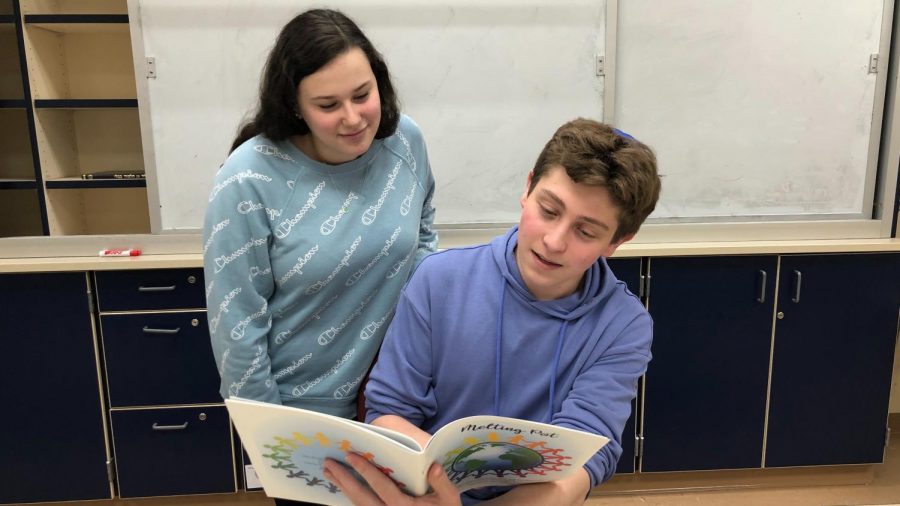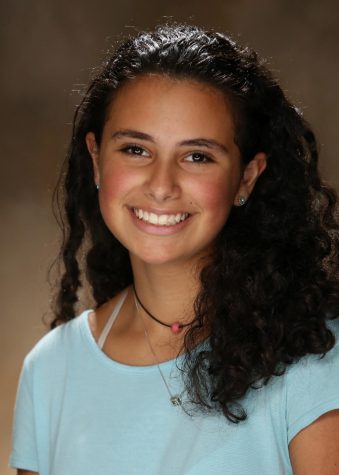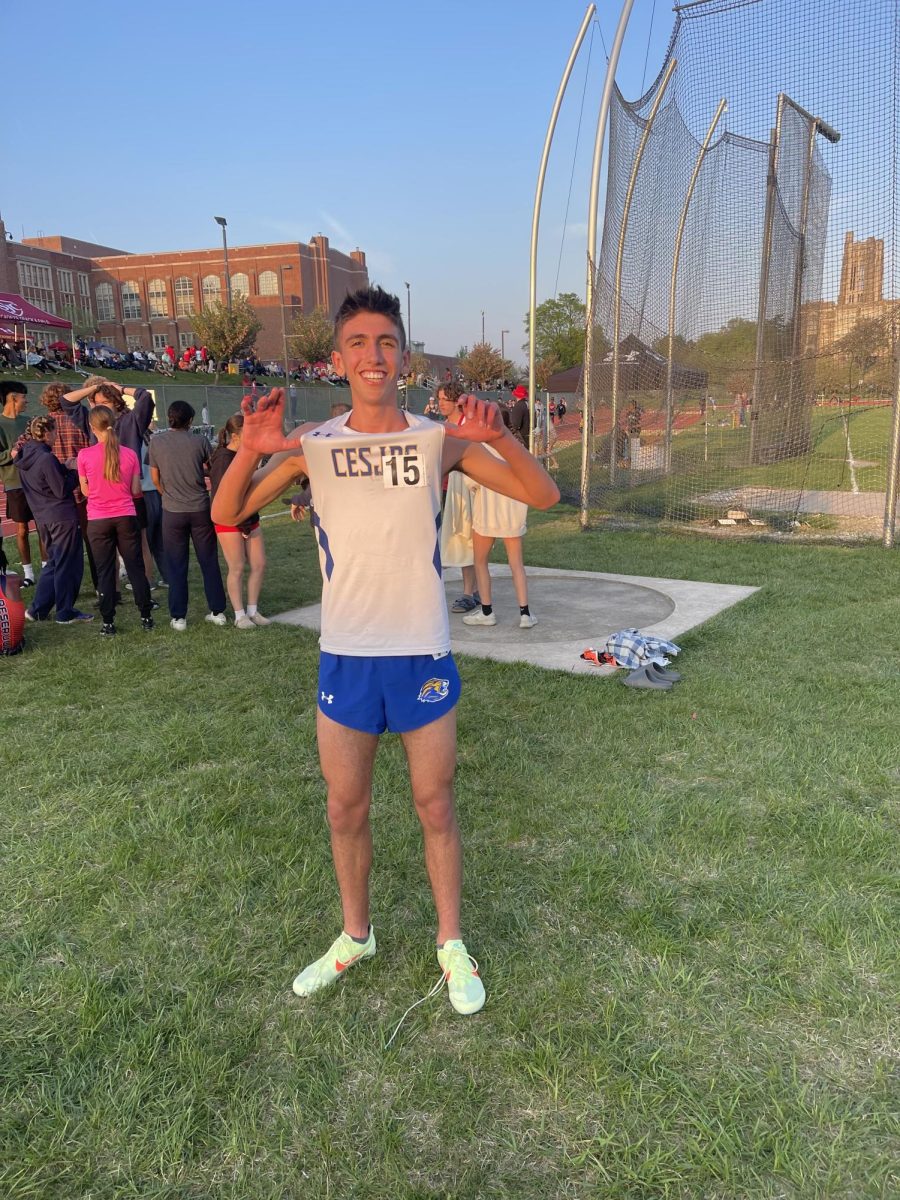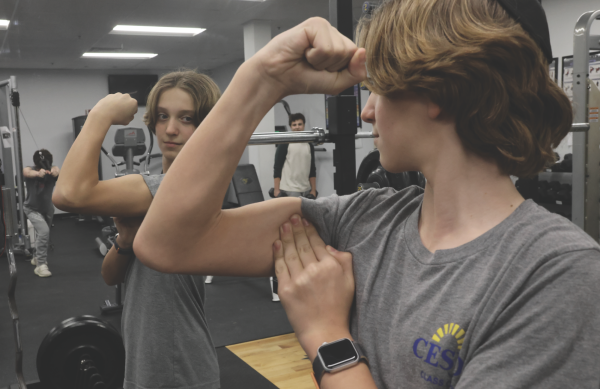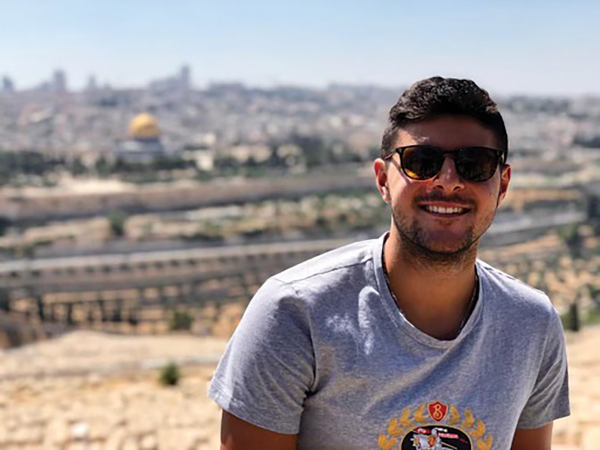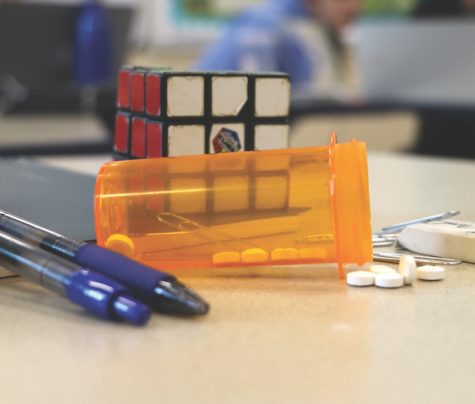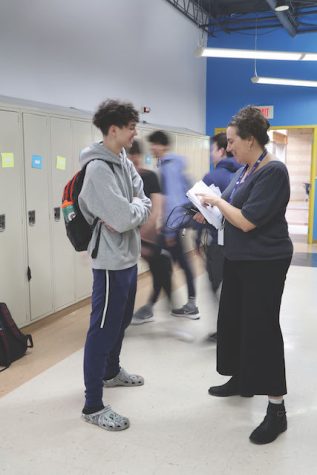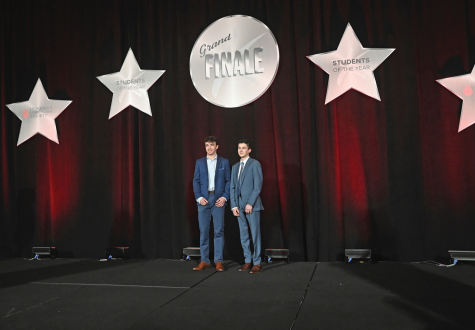That’s so extra: Students shift gears after the bell rings
May 23, 2019
The school day doesn’t end at 3:45 and neither does the learning: student life is just beginning. Students spend their afternoons pursuing all sorts of activities that they are passionate about.
Extracurriculars are a valuable part of a student’s education, teaching them skills and information that are not necessarily covered in a class, as well as being a place for students to explore topics and interests that they would like to pursue.
Athletics offer the widest variety of options for participation. There are three athletic seasons throughout the school year, allowing students to be on multiple teams. Throughout the year, students can choose from soccer, volleyball, tennis, cross country, basketball, swimming, wrestling, dance, track and field, baseball and softball.
“Athletics provide students a space to learn skills that can cross over to the classroom and their everyday lives,” Director of Athletics Becky Silberman said. “The focus, discipline and teamwork needed are all skills that apply in a student’s everyday life.”
In addition to athletics, CESJDS has a large selection of performing arts and publication opportunities. Shir Madness, the a capella group; the musical; Loa Ha’ari, the Hebrew Literary Magazine; Dimensions, the yearbook; Reflections, the literary magazine; Melting Pot, the Spanish and Arabic literary magazine; the
Bohr-Franklin Science Journal; and The Lion’s Tale, the student news-
paper, are all ways students can express their creative side. There is an abundance of academic-type clubs for students who aspire to enhance their general knowledge.
Academic clubs include the debate team, Junior State of America, Mock Trial, Model UN, Engineering and Robotics Clubs, Investment and Finance Clubs, Student Council and Grade Government for each grade.
For students with passions beyond academic areas, there are activism clubs, such as the Mental Health Awareness Club and Environmental Clubs for students to further explore and educate others about their interests.
High school principal and Associate Head of School Dr. Marc Lindner supports the extracurricular activities at JDS and sees the value they have for students. He feels that they provide a type of learning that is needed for students outside the classroom and that they give students the opportunity to pursue topics they could not necessarily pursue within a classroom.
“Learning takes place in all kinds of different ways. There is so much more to learning than just traditional academics,” Lindner said. “Extracurriculars are one of those things that help students broaden any possibilities they want to learn about.”
Publications:
Junior Micah Gritz is the co-editor-in-chief of Melting Pot, the high school Spanish and Arabic literary magazine. Each year, students from Spanish and Arabic classes come together to create a literary magazine full of art and poetry from those respective cultures.
Gritz currently takes both Spanish and Arabic
and is very invested in learning about both languages
and cultures. Originally, Gritz joined the Melting Pot staff last year because he wanted an activity to participate in. He has since realized the opportunity that
Melting Pot has provided him with: to learn to lead a group of people to create something together. He is now co-editor-in-chief and has enjoyed the increase in responsibility and leadership.
“I really enjoy this leadership role because it is a role that I couldn’t get anywhere else. Not only does it give me experience when it comes to writing and designing to create a magazine, but it gives others the chance to learn how to do that too and I think that’s really important,” Gritz said. “If you’re interested in any aspect of it, I think you should join because you could really gain a lot from it.”
At the beginning of the academic year, Gritz and his co-editor-in-chief Sabrina Bramson picked “New Beginnings” as the theme for this year’s magazine. Next, the design editors designed template spreads, and the staff collects poems, photos and interviews from students around the school. Each staff member designs a spread, which are put together to make the magazine.
Staff tries to complete the magazine by the National Spanish Honor Society ceremony to showcase the work of Spanish students, but that goal was not met this year.
Over the years, Melting Pot has earned multiple awards from the American Scholastic Press Association and the Columbia Scholastic Press Association that Gritz hopes to earn again with this year’s upcoming edition.
“The awards just show all the hard work that the staff puts into the magazine. We all know it is a good magazine, and the awards are nice to have, too,” Gritz said.
Sports:
Sophomore Ella Messler was setter and co-captain of the girl’s varsity volleyball team this past fall. This year, the team went 7-4 during the regular season and lost in the quarterfinals.
Messler has been on the varsity team since her freshman year and has played on competitive volleyball club teams outside of school, all of which have helped her develop a true love for the sport.
“You all come to practice every day and work hard together, and it’s just really fun,” Messler said. “The adrenaline I get when I set or serve the ball in a game is by far my favorite part of volleyball.” Messler really appreciates the group of girls that she gets to play with each day and sees them as an important part of her volleyball experience.
“It’s just a really great group of girls,” Messler said. “We all work really hard and it’s sort of like having built-in friends.”
Messler said that at practices, the team typically does drills, practices serves and passes and then does scrimmages.
“One of the biggest differences between school and club is that school is with people I see on a daily basis so as a team we bond faster than with a club team who I only see three times a week,” Messler said.
Messler added that “school is special because it’s representing my community as my team, while also representing my club with my skills.” Junior Mattie Watson is a fellow member of the team. “She’s a very enthusiastic player and captain and is very devoted to the team,” Watson said.
According to Watson, Messler helps plan bonding activities and team lunches that strengthen the cohesiveness of the team and their ability to connect. These types of team bonding opportunities increase the sense of camaraderie and community on the team.
“Messler is a great asset to our team because she ensures that everyone pays attention during practice and that everyone is committed to the team,” Watson said.
Academics:
Jacob Sher (‘19) was co-captain of the debate team this past school year. Sher has been a dedicated member of the debate team since his freshman year, and appreciates all the skills he gained from the unique club.
Throughout the season, the team debated multiple topics including H-1B Visas, required childhood vaccinations, price caps on pharmaceuticals and more in a style known as Public Forum. Sher and his partner went an impressive 9-1 in the regular season, and then went undefeated in round-robin playoffs, earning the top seed in the final tournament.
“Debate is genuinely an amazing club. It provides you with countless skills that you wouldn’t otherwise be able to learn from your regular day-to-day classes or activities,” Sher said.
In Sher’s opinion, preparing for a debate is the
most crucial part to do well in it. He feels that being able to prepare well with a partner is really beneficial when going into a debate and is one of the things that helped him most this past season while debating with his partner, co-captain Noah Kuperberg.
“It was really awesome that at any point during the season I could text Noah [my partner] an argument, and no matter how prepared we were, we would spend half an hour going back and forth, finding new ways to counter arguments,” Sher said. “I think that ability is what helped make us such a strong duo.”
One of Sher’s favorite aspects of debate was the challenge of stepping outside his comfort zone in preparing both sides of a new topic each month.
“Looking back on my experience in high school,
debate changed the way I think and how I approach unfamiliar topics,” Sher said. “It forced me to challenge my beliefs and defend arguments I might not necessarily agree with. It required collaboration and teamwork, making it a truly special and enjoyable experience.”
Activism:
Junior Emily Cohen is the leader of the environment club. The environmental club was started last year with the goal of having students come together to learn about the issues affecting the environment and to help make an impact around the school.
This year, the club sponsored a “green week” where students completed a different challenge each day to show how easy it is to reduce waste in students’ lives. The winner, freshman Talia Jacobsohn, received a hydroflask. The club has also been working with administration throughout the year to make the school more environmentally friendly.
“The environmental club is a place where everyone can be included and make a difference,” Cohen said. “Even the small things that we do just around school make a difference, and I think that’s really cool and important when trying to help the world.”
One of the things Cohen likes most about the club is how everyone plays a role in what the club does. Technically, by name, Cohen is the club’s leader, but in reality, she plays just as much of a role as every other member of the club.
“We all have different roles in the club to make it effective. No one student has a high position than another,” Cohen said. “We all work together, and I think that’s really important in a club like this.” At club meetings, members discuss current events affecting the environment, problems that currently exist within the school and the different
initiatives to solve those prevalent environmental issues.
The club also invites administrators to discuss how the school can meet the goals of the club and address certain environmental issues that the club focusses on, such as reducing, recycling and using reusable water bottles.
According to Cohen, grabbing the attention and the willingness of the administration to support the club’s goals is very difficult and is a common concern and topic of conversation in the club’s weekly meetings.
“I think there are a lot of issues going on in the school with going green, but I think that there’s hope for the future and I think that people are starting to see that we need to make changes in order to save our planet and address the continuous environmental issues facing our school community,” Cohen said.
This story was featured in the Volume 36, Issue 6 print edition of The Lion’s Tale, published on May 23, 2019.


